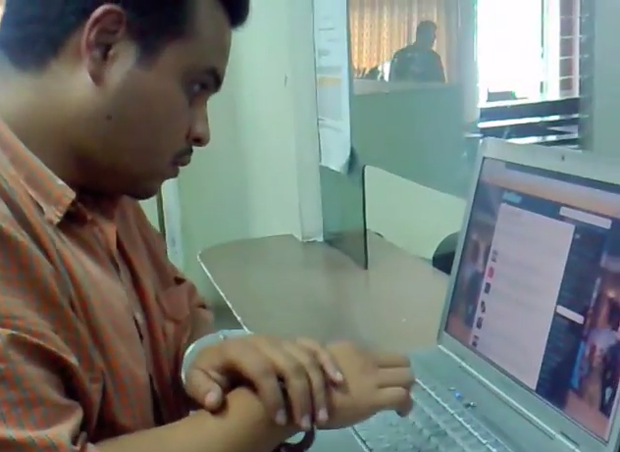17 Jun 2015 | Azerbaijan News, mobile, News and features
Governments don’t really like coming across as authoritarian. They may do very authoritarian things, like lock up journalists and activists and human rights lawyers and pro democracy campaigners, but they’d rather these people didn’t talk about it. They like to present themselves as nice and human rights-respecting; like free speech and rule of law is something their countries have plenty of. That’s why they’re so keen to stress that when they do lock up journalists and activists and human rights lawyers and pro-democracy campaigners, it’s not because they’re journalists and activists and human rights lawyers and pro-democracy campaigners. No, no: they’re criminals you see, who, by some strange coincidence, all just happen to be journalists and activists and human rights lawyers and pro-democracy campaigners. Just look at the definitely-not-free-speech-related charges they face.
1) Azerbaijan: “incitement to suicide”

Khadija Ismayilova is one of the government critics jailed ahead of the European Games.
Azerbaijani investigative journalist Khadija Ismayilova was arrested in December for inciting suicide in a former colleague — who has since told media he was pressured by authorities into making the accusation. She is now awaiting trial for “tax evasion” and “abuse of power” among other things. These new charges have, incidentally, also been slapped on a number of other Azerbaijani human rights activists in recent months.
2) Belarus: participation in “mass disturbance”
Belorussian journalist Irina Khalip was in 2011 given a two-year suspended sentence for participating in “mass disturbance” in the aftermath of disputed presidential elections that saw Alexander Lukashenko win a fourth term in office.
3) China: “inciting subversion of state power”
Chinese dissident Zhu Yufu in 2012 faced charges of “inciting subversion of state power” over his poem “It’s time” which urged people to defend their freedoms.
4) Angola: “malicious prosecution”
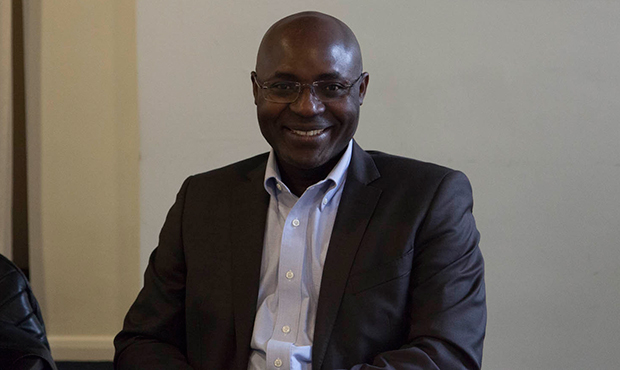
Journalist and human rights activist Rafael Marques de Morais (Photo: Sean Gallagher/Index on Censorship)
Rafael Marques de Morais, an Angolan investigative journalist and campaigner, has for months been locked in a legal battle with a group of generals who he holds the generals morally responsible for human rights abuses he uncovered within the country’s diamond trade. For this they filed a series of libel suits against him. In May, it looked like the parties had come to an agreement whereby the charges would be dismissed, only for the case against Marques to unexpectedly continue — with charges including “malicious prosecution”.
5) Kuwait: “insulting the prince and his powers”
Kuwaiti blogger Lawrence al-Rashidi was in 2012 sentenced to ten years in prison and fined for “insulting the prince and his powers” in poems posted to YouTube. The year before he had been accused of “spreading false news and rumours about the situation in the country” and “calling on tribes to confront the ruling regime, and bring down its transgressions”.
6) Bahrain: “misusing social media

Nabeel Rajab during a protest in London in September (Photo: Milana Knezevic)
In January nine people in Bahrain were arrested for “misusing social media”, a charge punishable by a fine or up to two years in prison. This comes in addition to the imprisonment of Nabeel Rajab, one of country’s leading human rights defenders, in connection to a tweet.
7) Saudi Arabia: “calling upon society to disobey by describing society as masculine” and “using sarcasm while mentioning religious texts and religious scholars”
In late 2014, Saudi women’s rights activist Souad Al-Shammari was arrested during an interrogation over some of her tweets, on charges including “calling upon society to disobey by describing society as masculine” and “using sarcasm while mentioning religious texts and religious scholars”.
8) Guatemala: causing “financial panic”
Jean Anleau was arrested in 2009 for causing “financial panic” by tweeting that Guatemalans should fight corruption by withdrawing their money from banks.
9) Swaziland: “scandalising the judiciary”
Swazi Human rights lawyer Thulani Maseko and journalist and editor Bheki Makhubu in 2014 faced charges of “scandalising the judiciary”. This was based on two articles by Maseko and Makhubu criticising corruption and the lack of impartiality in the country’s judicial system.
10) Uzbekistan: “damaging the country’s image”
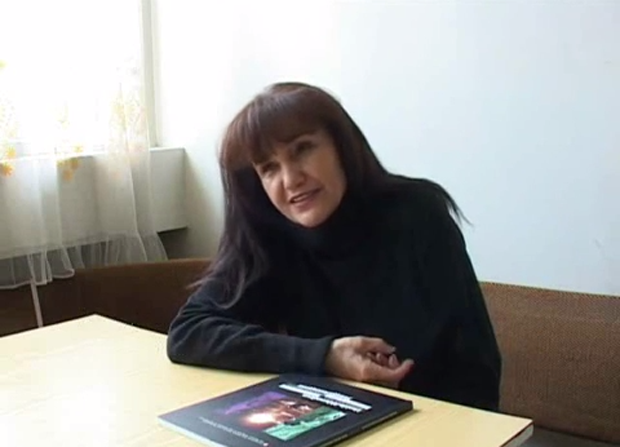
Umida Akhmedova (Image: Uznewsnet/YouTube)
Uzbek photographer Umida Akhmedova, whose work has been published in The New York Times and Wall Street Journal, was in 2009 charged with “damaging the country’s image” over photographs depicting life in rural Uzbekistan.
11) Sudan: “waging war against the state”
Al-Haj Ali Warrag, a leading Sudanese journalist and opposition party member, was in 2010 charged with “waging war against the state”. This came after an opinion piece where he advocated an election boycott.
12) Hong Kong: “nuisance crimes committed in a public place”
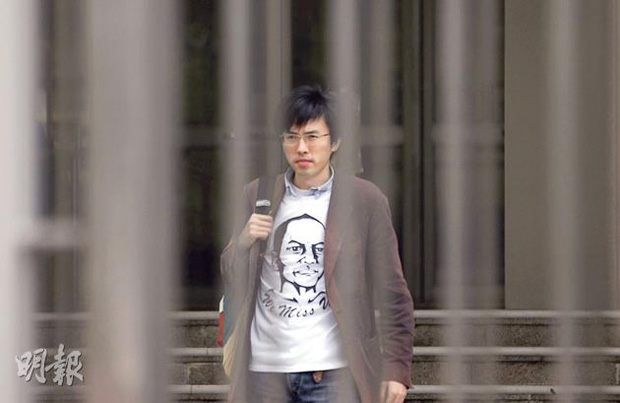
Avery Ng wearing the t-shirt he threw at Hu Jintao. Image from his Facebook page.
Avery Ng, an activist from Hong Kong, was in 2012 charged “with nuisance crimes committed in a public place” after throwing a t-shirt featuring a drawing of the late Chinese dissident Li Wangyang at former Chinese president Hu Jintao during an official visit.
13) Morocco: compromising “the security and integrity of the nation and citizens”
Rachid Nini, a Moroccan newspaper editor, was in 2011 sentenced to a year in prison and a fine for compromising “the security and integrity of the nation and citizens”. A number of his editorials had attempted to expose corruption in the Moroccan government.
This article was originally posted on 17 June 2015 at indexoncensorship.org
11 Jun 2015 | Azerbaijan Statements, Campaigns, mobile
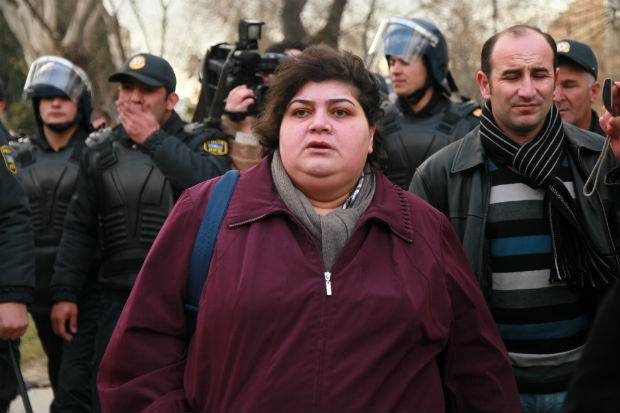
Investigative journalist Khadija Ismayilova is one of the government critics jailed ahead of the European Games.
Sustained efforts to silence critical voices by banning foreign journalists and rights groups tarnishes the inaugural European Games. Host country Azerbaijan has a dismal human rights record and has been involved in a crackdown internally on groups and individuals who speak out against the government: there are currently 80 political prisoners in jail, including award-winning investigative reporter Khadija Ismayilova, human rights lawyer Intigam Aliyev and pro-democracy campaigner Rasul Jafarov. Others are in exile or in hiding.
It is vital that external observers should be able to see and hear for themselves what is happening in Azerbaijan and the European Games provide an occasion to do just that. Sadly, Azerbaijan appears to be taking the same intolerant attitude towards foreign journalists and civil rights groups as it does at home. Journalists due to cover the games have been barred from entering the country, despite the European Olympic Committees’ commitment that it would uphold the Olympic Charter and would guarantee that media would be able to report freely.
The day before the opening ceremony and three hours before boarding his flight to Baku, The Guardian’s chief sports correspondent Owen Gibson learnt he was banned from reporting on the games. Earlier this week Amnesty was told it would not be able to present its report about human rights violations committed ahead of the games in Baku as planned and its representatives would not be welcome. Emma Hughes of UK-based non-governmental organisation Platform was barred from entering the country upon her arrival at Baku airport.
This is not acceptable. Azerbaijan’s actions are in direct contravention of the Olympic Charter. The European Olympic Committees (EOC) has the responsibility to demand Azerbaijan immediately reverses its decision to bar civil society groups and journalists from the country. Without such representatives, the EOC risks being complicit in a cover-up of human rights abuses in Azerbaijan, betraying the values and principles that are meant to lie at the heart of the Olympic movement.
Tomorrow, Index on Censorship will join Sport for Rights, Amnesty International UK, Article 19 and Platform for a demonstration in London calling for an end to the human rights crackdown in Azerbaijan, and the release of the country’s jailed journalists and human rights defenders.
11 Jun 2015 | Azerbaijan, Azerbaijan News, Europe and Central Asia, mobile, News and features

Azerbaijani President Ilham Aliyev (Photo: Demotix)
Critical Azerbaijani journalists may have been jailed, beaten, killed, and forced into hiding and exile. Foreign journalists may have been banned from entering the country for the inaugural European Games in the capital Baku. But don’t worry: Azerbaijani President Ilham Aliyev sure loves press freedom — at least according to his tweets.
1) HUNDREDS, you hear!
2) For those who can get in for the European Games, anyway.
3) All of the freedoms are available.
4) No, seriously, ALL OF THEM.
5) I really can’t stress this enough.
6) Free media = democracy. Azerbaijan definitely has both of those things. Definitely.
7) And the best way to forge active relationships is by banning them from entering the country. Obviously.
8) Again, activity is key.
9) Strengthening, targeting. Potato, potato.
10) …to jail.
This article was posted on 11 June, 2015 at indexoncensorship.org
10 Jun 2015 | Azerbaijan, Azerbaijan News, Europe and Central Asia, mobile, News and features

From top left: Arif Yunus, Rasul Jafarov, Leyla Yunus, Khadija Ismayilova, Intigam Aliyev and Anar Mammadli – some of the government critics jailed on trumped up charges in Azerbaijan
On the eve of the inaugural European Games, taking place in Baku, Azerbaijan, activists from Amnesty International and Platform have been banned from entering the country. Both organisations have been highly critical of President Ilham Aliyev’s government, and its continuing targeting, jailing and prosecution of activists and journalists. Amnesty was set to present its findings on the state of human rights in Azerbaijan at an event in the capital on 10 June.
Emma Hughes of London-based NGO Platform was travelling to Baku on Tuesday afternoon with a press accreditation. After landing she was taken off the plane by security for questioning, where she was told she was on a “red list”. Her passport was taken away and she was held overnight at the airport before being deported. CCTV images of Hughes in detention surfaced in Azerbaijani media on Tuesday.
Platform has been campaigning against British oil company BP’s involvement in the oil rich former Soviet state. Platform’s new book — All that Glitters — Sport, BP and Repression — written by Hughes, will be released on 12 June, the opening day of the games.
“I’m being detained on the orders of the BP-Aliyev regime. I may get deported, but over 100 political prisoners in Azerbaijan face years in jail until the oil-funded regime falls. Civil society has been stamped on hard in Baku. Journalists, lawyers, academics, writers and activists have all found themselves behind bars. And yet the Oil Games carry on regardless. The future of this country is imprisoned, yet BP still work hand in hand with this regime,” Hughes said from Baku airport before her deportation.
Amnesty was set to present findings from a research trip they undertook in March at the briefing Azerbaijan: the Repression Games, with four staff members preparing to travel to Baku on the morning of 10 June. Amnesty was informed on Tuesday 9 June, via the Azerbaijani embassy in London, that “Azerbaijan is not in a position to welcome the Amnesty mission to Baku at the present time”, and suggested to postpone the trip until after the games.
Naomi Westland, who works on issues around sports and human rights at Amnesty, was one of the staff members hoping to present in Baku. Speaking from Tiblisi, Georgia, she said everything from visas and plane tickets; to venues, speakers and guests for the briefing had been arranged before the last-minute government U-turn.
“Amnesty being barred proves all the criticism levelled at Azerbaijan has been absolutely right. There has been an intense crackdown on human rights ahead of the European Games. This proves the Azerbaijani authorities want to create a criticism free zone while the world’s media is in attendance. The games are a massive PR exercise to present Azerbaijan as a modern, dynamic, progressive state. Behind the scenes, the reverse is the case. Amnesty has become victims of the repression meted out in Azerbaijan,” Westland told Index.
The banning of Platform and Amnesty comes after a Human Rights Watch researcher, Giorgi Gogia, was denied entry and detained in March at Baku airport for 30 hours, before being deported.
The human rights situation in Azerbaijan has deteriorated in the months leading up to the games. Since last summer, the country’s most prominent critical voices — including investigative journalist Khadija Ismayilova, human rights activists Leyla and Arif Yunus, human rights lawyer Intigam Aliyev and pro-democracy campaigner Rasul Jafarov — have been jailed on charges widely dismissed as trumped up and politically motivated. Critics believe the government of President Ilham Aliyev is using the games as and international image laundering exercise.
Politicians, high-level Olympic officials and athletes have in recent weeks faced mounting pressure to use the games to take a stand on the crackdown. The campaigning group Sports for Rights — initiated by Jafarov before his arrest — has called on European leaders to make their attendance of the games conditioned on the release of political prisoners, while Lord Coe, chairman of the British Olympic Association, has been urged to use the games to show support for fundamental rights and freedoms in Azerbaijan. Council of Europe’s human rights commissioner Nils Muižnieks has encouraged games participants to user their platforms to speak out about human rights situation.
In Depth
• Azerbaijan: Silencing human rights
This article was posted on 10 June 2015 at indexoncensorship.org



